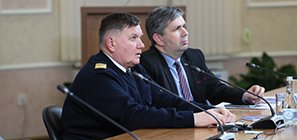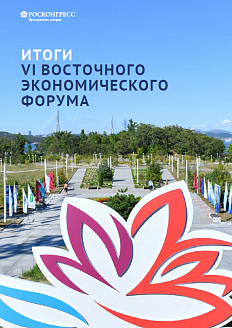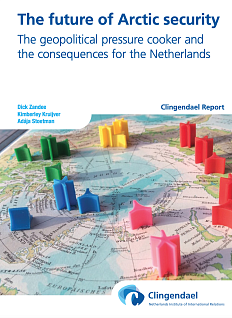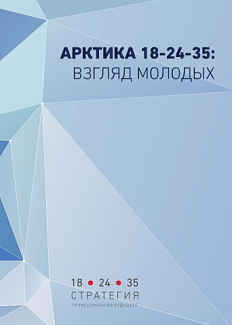Summary session «Personnel for the Social Sphere in the Arctic» within the framework of the Arctic Talent Acquisition Conference, which took place on November 15-16, 2021 in Arkhangelsk.
KEY FINDINGS
The specificity of the Arctic zone must be taken into account when regulating the training, attraction and retention of human resources
«In order to successfully train a new generation of highly qualified teachers who are in demand on the educational market and are motivated in their professional activities, we must take into account the specifics of the modern social and educational space of the Arctic, which is characterized by the presence of a multi-ethnic environment. A special place in this multicultural environment belongs to the Indigenous Peoples of the Far North. There are 150,000 people living in the Arctic zone of the Russian Federation who are representatives of 17 small Indigenous Peoples», said Svetlana Bulanova, Deputy Director of the Higher School of Psychology, Pedagogy and Physical Education of the Lomonosov Northern (Arctic) Federal University.
«We really need to rely on arcticness. However, unfortunately, we do not always get the chance to convey to our founder, the federal body, that it affects our allocation, including the numbers of people we can admit, and so on. This story needs to be formalized <...> because we really exist in other conditions. We have a task to attract human capital here and to retain the qualified personnel [who are already here]», said Anna Popova, head of the project office of the Murmansk Arctic State University.
«Arctic specificity, <...> Arctic exceptionalism should permeate efforts to train, attract, retain personnel», said Alexander Pilyasov, Director General of the ANO Regional Consulting Institute and Director of the North and Arctic Economics Centre for the Study of Productive Forces.
The introduction of best practices and the dissemination of successful international experience of the Arctic regions in attracting and retaining human resources in the social sphere will contribute to solving the problem of a shortage of specialists
«Consolidated efforts of the Arctic scientific and educational community are needed to solve the problems of training personnel capable of raising representatives of the new Arctic generation, particularly oriented towards values and meanings for building their life strategies that ensure the development of Arctic territories. Joint search and exchange of experience are needed», said Svetlana Bulanova, Deputy Director of the Higher School of Psychology, Pedagogy and Physical Education of the Lomonosov Northern (Arctic) Federal University.
«The Arctic Five cooperation project brings together five Nordic universities, and we are forming an educational model. Universities in the north and elsewhere in Europe are exchanging experiences, and this means that new opportunities are opening up in this crisis», said Professor Peter Sköld, Advisor to the Vice Chancellor for Arctic and International Affairs at Umeå University.
«The exchange of best practices <...> needs to be strengthened, intensified in the future. There should be a platform, a portal for sharing best practices, for attracting budget officials and personnel to the budget sphere of the Arctic regions», said Alexander Pilyasov, Director General of the ANO Regional Consulting Institute and Director of the North and Arctic Economics Centre for the Study of Productive Forces.
PROBLEMS
Staff shortages in the Arctic regions are primarily characterized by a shortage of young professionals, a lack of interest in working by medics of preretirement age and professional burnout
«There is a problem of ageing staff here. There is almost no replacement with modern teachers, highly qualified teachers», said Oleg Rusinov, Arkhangelsk Oblast Education Minister.
«I am referring to medical workers. They are pensioners or people of pre-retirement age. And, as we can see, the difficulty in attracting staff is primarily the pre-retirement age of people who, for whatever reason, refuse to continue working and prefer working to a quiet retirement», said Alexander Gershtansky, Acting Minister of Health of Arkhangelsk Oblast.
«People are getting older and older. This is typical for remote regions. And there are many young people living in the cities», said Professor Peter Sköld, Advisor to the Vice Chancellor for Arctic and International Affairs at Umeå University.
Young people’s interest in working in the Arctic zone is declining due to the decline in prestige of socially oriented professions, low wages and the lack of an established demand for human resources in the creative industries
«The shortage of staff is certainly also linked to the declining prestige of the profession. Unfortunately, there is a perception in society and the general public that medical professionals do not earn enough money to support their families. Accordingly, people started to choose more interesting and better-paid professions, which also led to a shortage», said Alexander Gershtansky, Acting Minister of Health of Arkhangelsk Oblast.
«Admission quotas [in universities] for these areas [tourism, urban studies, architecture, creative, IT specialities] are sometimes tough to obtain, especially for the Arctic. There are these areas in big cities. There is academic groundwork. But we know from experience that children who went to study in major cities do not come back with these competencies», said Anna Popova, head of the project office of the Murmansk Arctic State University.
SOLUTIONS
Targeted recruitment of more applicants, raising the prestige of working in the north, decent pay and comfortable living conditions will help to attract young people to social careers
«We would like to bring back the payment methodology that existed during the times of the Soviet Union, when indeed people who went to work to the North, even maybe on a rotational basis, they received considerably more money than people in the middle belt of Russia earned. <...> By creating comfortable housing, it will be possible to attract staff more easily than now», said Alexander Gershtansky, Acting Minister of Health of Arkhangelsk Oblast.
«Increasing admission quotas is probably the immediate main task. Otherwise, the staff shortage will not be solved», said Lyubov Gorbatova, Rector of the Northern State Medical University, Ministry of Health of the Russian Federation.
The use of modern methodologies, IT technologies and the active involvement of municipalities and employers will help to attract and retain staff in the Arctic zone
«There should be a very clear, not only near-term, but also long-term forecast of medical staffing needs. It is necessary to involve employers in the development and implementation of educational programmes, monitor the employment of graduates, and include university representatives in various collegial advisory bodies on healthcare staffing in the Arctic and subarctic regions», said Lyubov Gorbatova, Rector of the Northern State Medical University, Ministry of Health of the Russian Federation.
«Use new IT tools, marketing and recruitment technologies together with an ideological component. We are not reinventing the wheel but suggesting that we repeat the BAM youth movement of the Soviet period. <...> It is thanks to IT tools, this movement can be very well and qualitatively implemented», said Pyotr Chekhordun, Director of the Sakha Republic (Yakutia) Foundation for Northern Development.
For more analytical materials on the Arctic agenda, see the Roscongress Information and Analytical System roscongress.org/en/knowledge/arktika/materials/.
The material was prepared by the information partner of TASS.






